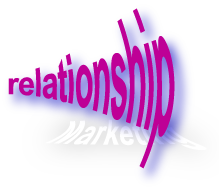
You can create more opportunity with a career mission, especially when you don’t get distracted by traditional career or job search concerns like whether you have a “consulting” or “employment” relationship. Here I’ll share how you can create far more opportunity by changing your assumptions about work, tapping the Social Channel and aligning yourself with the emerging Knowledge Economy. To illustrate the point, I’ll use myself as an example because I’m a veteran of many types of “work arrangements.”
It’s the good news-bad news story of the almost-decade: legacy “work” and “jobs” have permanently gone by the wayside as the primary means for people to be productive in “modern” economies (bad news). However, people can create a higher quality of life by adopting a more flexible approach to work, and organizations are crying out for flexibility (good news).
[…]
Nonprofits’ and NGOs’ use of street marketing and social media reveals how mission too often overshadows relationship building—and alienates more people than it attracts.
 In How Nonprofits & NGOs Can Press Their Home Court Advantage in Social Business, I explained how nonprofits had a significant “moral advantage” over commercial enterprises because they were cause-focused, which is inherently more attractive to most people than business focus. However, as I’ll explain here, too many NFPs apply their moral advantage in the wrong way, so it creates more negative than positive impressions. I’ll use the tangible example of street marketing to make the point before applying it to social business/social media. In How Nonprofits & NGOs Can Press Their Home Court Advantage in Social Business, I explained how nonprofits had a significant “moral advantage” over commercial enterprises because they were cause-focused, which is inherently more attractive to most people than business focus. However, as I’ll explain here, too many NFPs apply their moral advantage in the wrong way, so it creates more negative than positive impressions. I’ll use the tangible example of street marketing to make the point before applying it to social business/social media.
[…]
Upgrading the Expert Role for the Knowledge Economy shows how knowledge workers can no longer seek refuge in their core expertise, and how to branch out.

“Experts” are regarded as the foremost authorities in their fields, the glib guru versions notwithstanding. An oft quoted maxim shows why: according to Malcolm Gladwell, for one, it takes 10,000 hours [of study, work] for most people to become expert in something.* On a related front, Naveen Jain posits that experts will be less likely to solve today’s toughest problems because their expertise has become a box around them. All those degrees or promotions within the organization have focused their minds but also closed out creativity. While commenting on his post, I realized that redefining the expert would be necessary in the Knowledge Economy, so here I’ll offer some strategies and tactics for how to practice being an “expert” in the 21st century.
Notably, we can take lessons from experts and apply them to specialists, which are arguably less far along on the same vector—and more common.
[…]
 My predictions from the 1990s and beyond about the disruption of “careers” and “work” have been coming true at an increasing pace, so here I’ll offer a quick retrospective of key trends as well as numerous how-to resources for using these disruptions to your advantage. Disruptions change the rules. Although most people don’t like “the rules” at times, we all take comfort in them because we have a clue about how to manage and get what we want. No one likes to feel clueless, but that’s how disruption causes most people to feel, so they try to avoid it. However, by facing the world head on and understanding the profound economic and social changes that are happening, you can see where the proverbial puck will be and skate there before most other people. Let’s go! My predictions from the 1990s and beyond about the disruption of “careers” and “work” have been coming true at an increasing pace, so here I’ll offer a quick retrospective of key trends as well as numerous how-to resources for using these disruptions to your advantage. Disruptions change the rules. Although most people don’t like “the rules” at times, we all take comfort in them because we have a clue about how to manage and get what we want. No one likes to feel clueless, but that’s how disruption causes most people to feel, so they try to avoid it. However, by facing the world head on and understanding the profound economic and social changes that are happening, you can see where the proverbial puck will be and skate there before most other people. Let’s go!
[…]
 In Five Tips for Smarter Social Networking in their Big Shift Harvard Business Review blog, John Hagel III and John Seely Brown offer solid advice for executives who want to get traction with social networks, some of which might surprise you. It’s valuable for executives from individual and company perspectives. Here’s the post, and here’s my response, which builds and extends some of their points: In Five Tips for Smarter Social Networking in their Big Shift Harvard Business Review blog, John Hagel III and John Seely Brown offer solid advice for executives who want to get traction with social networks, some of which might surprise you. It’s valuable for executives from individual and company perspectives. Here’s the post, and here’s my response, which builds and extends some of their points:
John2, thanks for very solid advice all around. However, I totally agree with @cole, to be most productive as an individual or an enterprise, you must have an explicit strategy. An enterprise is an orchestra, so defining key goals and techniques, without dictating, is critical for success. This includes giving guidance and space for employees to pursue their personal branding, by resonating with the enterprise.
[…]
 In Allfacebook, Nick O’Neill presents a chart that compares the first six years’ revenue for Yahoo!, Google and Facebook. Even though some of these exercises are coffee-cooler talk without much substance, this one afforded the opportunity to think about how Facebook and Google add value. In Allfacebook, Nick O’Neill presents a chart that compares the first six years’ revenue for Yahoo!, Google and Facebook. Even though some of these exercises are coffee-cooler talk without much substance, this one afforded the opportunity to think about how Facebook and Google add value.
According to BusinessInsider’s interpretation, neither Google nor Facebook emphasized revenue in the early years and hockey-sticked later. Here’s the article, and here are my thoughts on all three players:
[…]
How Commercial and Government Firms Are Using Facebook (More at NotaBene) my delicious.com
 You Know Facebook Connect but why not LinkedIn Connect? discusses credentialing across websites in the Web 3.0 version of single signon. You Know Facebook Connect but why not LinkedIn Connect? discusses credentialing across websites in the Web 3.0 version of single signon.
Shannon Clark, on his Slow Brand blog, presents the idea of a LinkedIn Connect, which would enable users to authenticate and share certain approved information from their LinkedIn presence on third-party sites. He writes, “Why isn’t LinkedIn looking to be the Identity layer for not just a few applications running inside of LinkedIn or a very small handful of LinkedIn Partners, but instead to offer a strong, business focused identity layer for 1000?s of business applications across the Internet?” Great question that merited some cycles.
Here’s the post, with my thoughts below. A good thread with some technical discussion, but understandable for non-techies, too.
[…]
Why Twitter was one of the Web 2.0 innovations of the decade.. analysis and conclusions about Twitter’s value proposition for changing the economics of the Relationship Life Cycle […]
Unclear communication or deception? Short case study of how *not* to communicate in Linkedin or other social networks during job search, capital raise or business development […]
|
|


 In How Nonprofits & NGOs Can Press Their Home Court Advantage in Social Business, I explained how nonprofits had a significant “moral advantage” over commercial enterprises because they were cause-focused, which is inherently more attractive to most people than business focus. However, as I’ll explain here, too many NFPs apply their moral advantage in the wrong way, so it creates more negative than positive impressions. I’ll use the tangible example of street marketing to make the point before applying it to social business/social media.
In How Nonprofits & NGOs Can Press Their Home Court Advantage in Social Business, I explained how nonprofits had a significant “moral advantage” over commercial enterprises because they were cause-focused, which is inherently more attractive to most people than business focus. However, as I’ll explain here, too many NFPs apply their moral advantage in the wrong way, so it creates more negative than positive impressions. I’ll use the tangible example of street marketing to make the point before applying it to social business/social media.
 My predictions from the 1990s and beyond about the disruption of “careers” and “work” have been coming true at an increasing pace, so here I’ll offer a quick retrospective of key trends as well as numerous how-to resources for using these disruptions to your advantage. Disruptions change the rules. Although most people don’t like “the rules” at times, we all take comfort in them because we have a clue about how to manage and get what we want. No one likes to feel clueless, but that’s how disruption causes most people to feel, so they try to avoid it. However, by facing the world head on and understanding the profound economic and social changes that are happening, you can see where the proverbial puck will be and skate there before most other people. Let’s go!
My predictions from the 1990s and beyond about the disruption of “careers” and “work” have been coming true at an increasing pace, so here I’ll offer a quick retrospective of key trends as well as numerous how-to resources for using these disruptions to your advantage. Disruptions change the rules. Although most people don’t like “the rules” at times, we all take comfort in them because we have a clue about how to manage and get what we want. No one likes to feel clueless, but that’s how disruption causes most people to feel, so they try to avoid it. However, by facing the world head on and understanding the profound economic and social changes that are happening, you can see where the proverbial puck will be and skate there before most other people. Let’s go! In Five Tips for Smarter Social Networking in their Big Shift Harvard Business Review blog, John Hagel III and John Seely Brown offer solid advice for executives who want to get traction with social networks, some of which might surprise you. It’s valuable for executives from individual and company perspectives. Here’s the post, and here’s my response, which builds and extends some of their points:
In Five Tips for Smarter Social Networking in their Big Shift Harvard Business Review blog, John Hagel III and John Seely Brown offer solid advice for executives who want to get traction with social networks, some of which might surprise you. It’s valuable for executives from individual and company perspectives. Here’s the post, and here’s my response, which builds and extends some of their points: